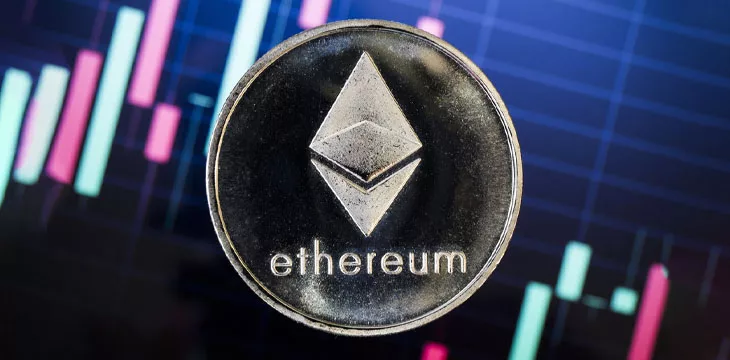The Curated News Hub
Your daily source for diverse news and insights.
ETH: The Currency of Tomorrow's Internet Revolution
Discover how ETH is reshaping the future of the internet and why it's the currency of the tomorrow's digital revolution!
What is Ethereum and How Does it Power the Future of the Internet?
Ethereum is an open-source, decentralized blockchain platform that enables developers to build and deploy smart contracts and decentralized applications (dApps). Created in 2015 by Vitalik Buterin and a group of co-founders, Ethereum introduced the concept of programmable money, allowing for a vast array of services and applications beyond simple transactions. With its native cryptocurrency, Ether (ETH), Ethereum powers transactions and incentivizes developers to create innovative solutions that can transform various industries. For a deeper understanding of Ethereum's architecture and technology, you can visit Ethereum's official website.
In the context of the future of the internet, Ethereum plays a crucial role by facilitating the development of the decentralized web or Web3. This new iteration of the internet aims to reduce reliance on centralized authorities, giving users more control over their data and online interactions. By utilizing blockchain technology, Ethereum empowers developers to create applications that are resistant to censorship and fraud. Projects like decentralized finance (DeFi) and non-fungible tokens (NFTs) are prime examples of how Ethereum is paving the way for a more autonomous and dynamic digital landscape. To explore further, check out Investopedia's guide to DeFi and CoinDesk's explanation of NFTs.

The Role of Smart Contracts in Ethereum: Transforming Online Transactions
Smart contracts play a pivotal role in the Ethereum ecosystem, revolutionizing the way online transactions are conducted. These self-executing contracts, with the terms of the agreement directly written into code, ensure that transactions occur automatically without the need for intermediaries. By leveraging blockchain technology, Ethereum enables smart contracts to facilitate secure and transparent transactions, reducing risks associated with fraud and enabling greater efficiency. With built-in automation and compliance, smart contracts are becoming a cornerstone of various industries, eliminating the complications of traditional contract enforcement.
Moreover, smart contracts empower developers and businesses to create decentralized applications (DApps) that can operate seamlessly on the Ethereum blockchain. This technology fosters a trustless environment where parties can engage in transactions with confidence, knowing that the contract will uphold its terms without relying on any third party. As Ethereum's documentation details, these contracts can be programmed to handle a wide range of tasks—from simple token transfers to complex transactions involving multi-party agreements. The ongoing evolution of smart contracts is set to transform not only online transactions but also the entire landscape of digital agreements, heralding a new era of accountability and reliability.
Why Ethereum is Considered the Backbone of Decentralized Applications (dApps)
Ethereum is widely recognized as the backbone of decentralized applications, or dApps, due to its powerful blockchain infrastructure that enables developers to build and deploy their innovative applications without the need for intermediaries. Unlike traditional applications that rely on centralized servers, Ethereum allows dApps to operate on a blockchain, ensuring transparency, security, and immutability. This decentralized nature not only minimizes the risk of censorship and downtime but also promotes a trustless environment where users can interact directly with the application. Furthermore, the introduction of smart contracts has transformed the way transactions are executed, automating processes and reducing operational costs.
The Ethereum platform provides robust scalability options and a vast ecosystem of resources, making it the preferred choice for developers worldwide. With over 3,000 dApps currently built on Ethereum, it has established itself as the most widely used platform for decentralized applications. Additionally, community support, continuous upgrades, and the transition to Ethereum 2.0 promise enhanced scalability and sustainability, further reinforcing its position as the leading infrastructure for dApps. As the market for decentralized technologies continues to expand, the role of Ethereum as a foundational pillar for these applications remains indispensable.